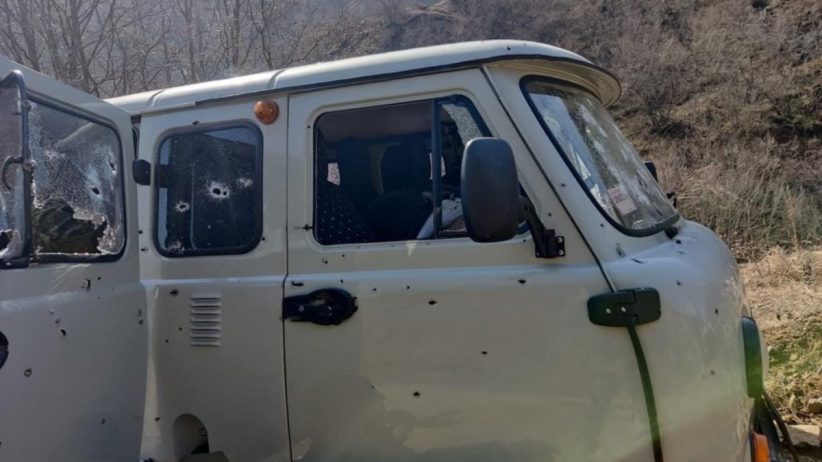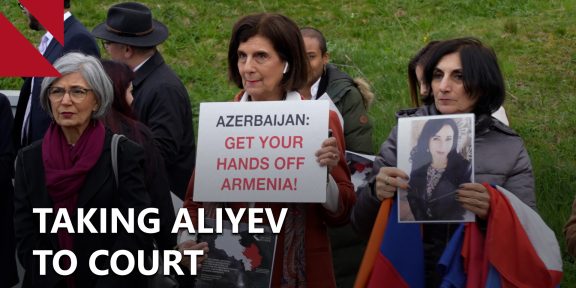By Mark Dovich
The Russian peacekeepers in Karabakh confirmed Monday that Azerbaijani soldiers initiated Sunday’s deadly clashes in the region, prompting rebuttals from Baku.
In their daily bulletin, the peacekeepers noted that “a vehicle with Nagorno-Karabakh law enforcement officers was shot at by servicemen from Azerbaijan’s armed forces,” adding that “the clash was stopped by the efforts of the Russian peacekeepers.”
A group of Azerbaijani soldiers ambushed a Karabakh police car outside of Stepanakert Sunday morning, leaving three officers dead and one seriously injured. In the ensuing skirmishes, two Azerbaijani soldiers were killed and one injured.
Baku quickly hit back at the peacekeepers for having “distorted the facts and spread untruthful information” and doubled down on its claim, contrary to all available evidence, that the Karabakh police officers opened fire first.
Stepanakert decried the attack as a war crime, while Yerevan dismissed Azerbaijan’s claim that the Karabakh officers initiated the clash as “absurd.”
The clashes have attracted international attention, with Brussels, Moscow, Paris, and Washington all expressing concern over escalating tensions in the region, which had seen four consecutive days of reported ceasefire violations before Sunday’s incident.
Azerbaijan’s attack came amid a number of high-profile visits to the region by outside mediators, including special envoys Louis Bono of the United States, Toivo Klaar of the European Union, and Brice Roquefeuil of France.
Bono and Klaar were in Baku Sunday for separate talks with Azerbaijani President Ilham Aliyev, while Roquefeuil was in Yerevan for a meeting with Armenian Prime Minister Nikol Pashinyan. It is Bono’s first trip to the region since his appointment last month.
Meanwhile, Azerbaijan’s blockade of Karabakh entered its 86th day Tuesday, despite last month’s ruling by a United Nations court ordering Baku to end the blockade, which has prompted severe shortages of food, medicine, and other necessities in the region. Though the ruling is legally binding, the court has no enforcement powers.
















